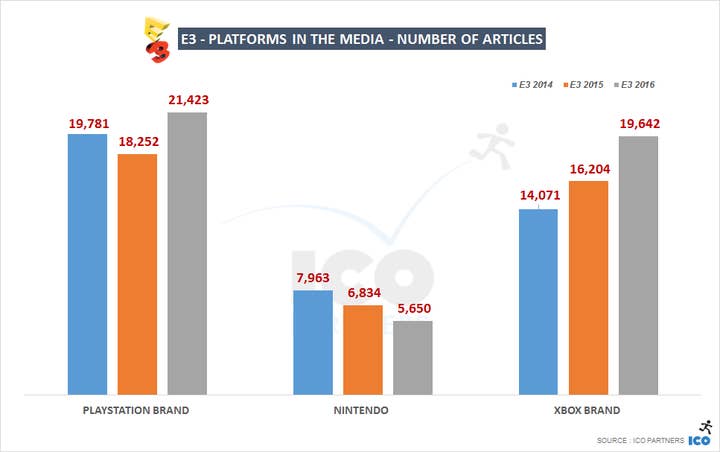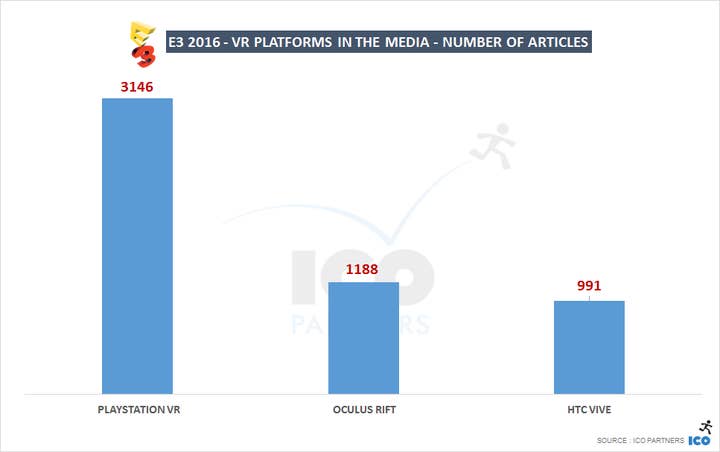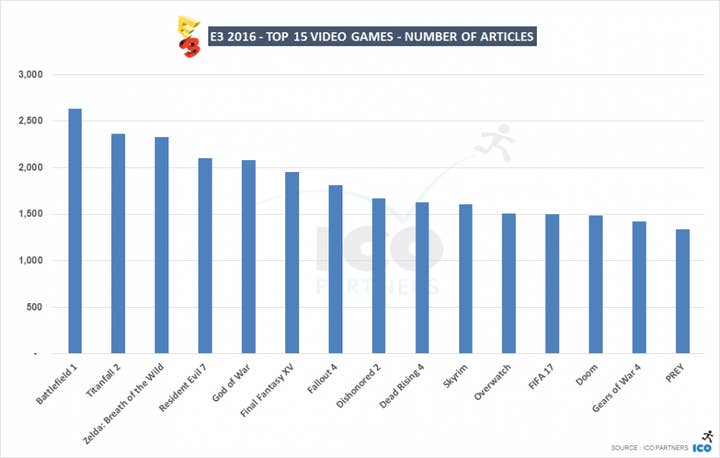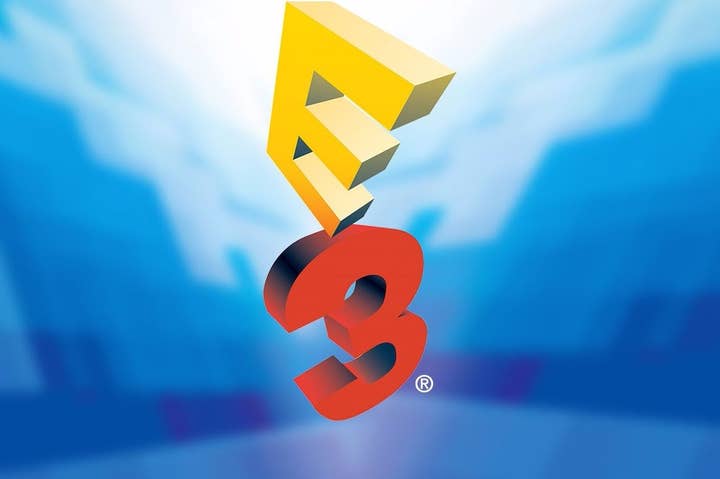Sony, Microsoft share honours for E3 coverage
EA is most talked about publisher, despite no show floor presence
Sony and Microsoft were almost neck and neck in the race for media coverage from last week's E3, with Sony edging slightly ahead. According to research collated by ICO Partners, the Playstation 4 was the most talked about platform, whilst PSVR also attracted more column inches than either the Oculus Rift or Valve's Vive.
ICO Partners runs the analysis each year ( methodology can be found here ), comparing the number of articles written about each platform, major game and any other key trends. This year, both Sony and Microsoft received more coverage than the year prior, although Nintendo unsurprisingly slipped a little. According to ICO, 21,423 articles were written about Sony, 19,642 about Microsoft and just 5,650 about Nintendo. Sony also edged Microsoft in terms of individual platforms, as the PS4 received marginally more coverage than the Xbox One, despite the announcement of Scorpio.
"This is the 2nd year where Nintendo as a brand is declining in the media coverage during E3," writes ICO head Thomas Bidaux. "The lack of any hardware announcement, when both Sony and Microsoft made one, and the format of their announcement that focuses on the online audience rather than to the in-person press conferences of its competitors, means that the firm is losing out on mindshare with the media during the E3 week.

"On the Sony front, 2015 saw a slight dip, but this year has seen the most mentions of any console brand across an E3 week since we began our tracking. This is on the back of the teasing of the PS4 Neo, and a release date and price for Playstation VR. It is also the press conference that had the highest proportion of new games announced:
"For Microsoft, this also proved to be an excellent E3, as for the 2nd year media mentions of their console brand has increased, taking it to the level Playstation had in 2014. The double announcements of the Xbox One S and the Project Scorpio with its promise of VR support were the strongest take-aways from their press conference."

EA's choice to stay away from the showfloor this year in favour of staging its own conference certainly paid off, with Battlefield one being written about more than any other game, followed closely by stablemate Titanfall 2, whilst EA was the most mentioned publisher - albeit in very close proximity to both Ubisoft and Bethesda. However, when factoring in the potential reach of these articles, coverage of Nintendo's extensive Zelda demo was actually seen by more people.
"There were only 3 publisher-powered press conferences this year, with Square Enix skipping it this time around," writes Bidaux. "While Ubisoft had better coverage for its top titles than last year, it is still not doing as well as EA or Bethesda, both having been set prior to the console makers events.
"EA sees its two first-person shooters dominating the line up. Whilst Battlefield is a known quantity, and it doing very well is not surprising, Titanfall 2 is a surprising 2nd as the most talked about game of E3. Another surprise is the how a sports title like FIFA, a genre that doesn't usually get a lot of media to talk about them in comparison, has had more coverage than any of the Ubisoft titles for instance. The announcement of the story mode probably played a very strong part in this. And lastly, Mass Effect: Andromeda, despite having very little shown about it last week AND being an RPG, also not the biggest genre for video games, has performed remarkably well in the media.

"Out of the 4 most discussed Bethesda titles, only 1 hasn't been released yet, and it had already been announced last year, showing an interesting trend for Bethesda's games to capture the attention of the media beyond their launch - more so than the upcoming titles like PREY or Quake Champions.
"All things considered, 2016 was a strong E3, although with much of the action happening on the periphery of the event itself, the "E3 show" as we know it is certainly changing. EA, running its event in parallel, actually came out stronger than it had in the past at the event. It might be a new trend starting, with the question of the role the show itself would play if more companies decide to piggy back on the draw it has with media during the week, without actually contributing to it. Would it work out at all without the support of the majority of large publishers?"









